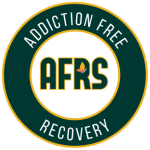Stories about addiction are often one-dimensional. People focus on substance use, overlooking other complexities that comprise mental health issues that often co-occur with addiction, making this an important oversight: many people fighting addiction also have problems with co-occurring disorders.
Important Takeaways
- Co-occurring disorders are prevalent and, therefore, require an integrated approach to treatment for recovery.
- Treatment for integrated treatment encompasses both substance use disorders and mental health disorders.
- Family support is crucial for long-term recovery success; evidenced-based therapies of CBT and DBT can provide a valid methodology to deal with symptoms.
This blog will explore the concept of co-occurring disorders, the importance of integrated treatment, some challenges in this dual diagnosis landscape, evidence-based approaches, and the family and support systems’ most critical role in achieving long-term recovery.
Understanding Co-occurring Disorders
Co-occurring disorders, also known as dual diagnosis, refer to the presence of one or more other mental health disorders in addition to a substance use disorder. This interaction can be complex because each problem can feed into and complicate the other. For example, an addict may use alcohol or drugs as in vivo self-medication when depressed. Still, a drug abuser might even become anxious or depressed because of the interpersonal and personal complications that have resulted from substance abuse.
Common Co-occurring Disorders
The most important would be to identify common mental health disorders often associated with addiction, hence, the indicators and symptoms that demand integrated treatment. Among the most common co-occurring disorders are as follows:
Anxiety Disorders | Individuals with anxiety disorders-anxiety disorder or panic disorder-turned to substances as a form of reprieve. It is a tragedy that using substances does not alleviate but rather intensifies anxiety states and continues the cycle. |
Depression | The majority of users would have attendant depression. In the vicious cycle thereby established from which it is not easy to break out, the feelings of hopelessness, sadness, and isolation may enhance substance use. |
| Post-Traumatic Stress Disorder | People with psychological disorders, after experiencing trauma, may resort to substances for pain, and it leads to substance dependency. |
| Bipolar Disorder | A patient diagnosed with bipolar disorder may be using drugs or alcohol during the periods of mania or depression; in such cases, treatment can get fairly complicated, with the mood swings disrupting use patterns. |
The Two-Way Relationship
There is a two-way relationship between the use of substances and mental health disorders, where either condition will exacerbate the other. Thus, while a depressed patient may resort to drugs as a quick solution in managing their depressed feelings, on the long end, substance use will probably enhance depressive symptoms, hence the vicious cycle already created. Treatment becomes very effective only if such interaction is well understood.
Integrated Treatment: A Key Perspective
What Is Integrated Treatment?
The approach to treating both substance use and mental health disorders in an integrated way is called an integrated treatment. This model recognizes the complex relationship existing between substance use disorders and mental health disorders by a holistic approach to treatment rather than isolating the two issues separately.
Key Ingredients of Integrated Treatment
An integrated treatment program should include key components to treat co-occurring disorders effectively.
In this type of scenario, proper individualized treatment would require an in-depth assessment of the substance use and symptoms of mental health.
| Personalized Treatment Plans | Each client will require a tailored approach that addresses his/her needs, problems, and goals with a combination of therapeutic modalities and interventions |
| Multidisciplinary team | Comprehensive treatment often requires a team consisting of therapists, psychiatrists, and addiction specialists, among other professionals. These professionals work cohesively to provide a consistent experience during treatment. |
Advantages of Integrate Treatment
There are also many benefits in dual therapy for co-occurring disorders.
- Improving Treatment Outcome. Addressing both issues simultaneously may provide a better outcome than treating them separately since patients will likely recover in the long run.
- Reduced Relapse Risk by Integrated Treatment. This enables the person to obtain coping skills to manage both mental health issues and substance use disorders in a way that reduces potential relapse.
- Quality of Life. By treating addiction and other related mental health disorders, it improves the quality of the lives for those individuals.

Issues in Treating Co-Occurring Disorders
Barriers to Effective Treatment
Yet, while integrated treatment is necessary, several barriers can limit access to good care:
- Stigma. Stigma related to mental health and substance use disorders can be a huge deterrence for those seeking help. There is so much fear of judgment; therefore, people do not fully disclose their struggles.
- Lack of Resources. In addition to those described above, treatment centers have few resources and inadequately trained staff to provide integrated care, which usually makes access difficult.
- Lack of Training. There could be a lack of proper training for the majority of health care providers about co-occurring disorders, leading to inappropriate diagnosis and treatment.
Know the Signs:
It is a little tricky to diagnose because co-occurring disorders often share the same symptoms. For example, someone’s behavior may be the same whether that person suffers from anxiety or anxiety with a substance use disorder. Comprehensive assessments are needed to understand the full extent of someone’s problems and develop an effective treatment.
The Role of the Patient
To tackle the problems created by comorbidity, the patient must be very proactive. The patient should be motivated to take responsibility for his or her treatment course, set goals, and follow up on progress toward recovery. Once empowered, patients become more responsible and confident.
Evidence-Based Interventions to Treat
Cognitive Behavioral Therapy (CBT)
Co-occurring disorders can be treated with one of the most effective treatment modalities, Cognitive Behavioral Therapy, or CBT. This is an evidence-based therapy that helps identify and replace not only negative thought patterns but also other behaviors that contribute to addiction and mental health problems in such individuals. This way, the individual learns new, healthier coping strategies and a more positive attitude.
Dialectical Behavior Therapy (DBT)
Another highly effective treatment is Dialectical Behavior Therapy, where mainly emotional dysregulation problems, like borderline personality disorder or even extreme mood swings, can best be treated. DBT is an intervention that combines cognitive-behavioral techniques with mindfulness strategies to help people regulate their emotions, enhance interpersonal effectiveness, and decrease self-destructive behaviors.

Medication-Assisted Treatment (MAT)
MAT is helpful for individuals experiencing substance use disorders, especially when supplemented with therapy. Certain medications, such as buprenorphine or methadone, block the effects of other substances, decrease cravings, and provide ease during withdrawal symptoms, thereby allowing the individual to engage in treatment of his or her co-occurring mental health issues.
Role of Family and Support Systems
Including family members in treatment processes highly enhances the possibility of positive recovery outcomes. Family therapies allow open communication so that trust and relationships can be built anew and even improved. Educating the family about the complexities of co-occurring disorders enables them to offer better support and encouragement to their loved ones.
Building a Support Network
Most people with co-occurring disorders have a robust support system. Family, friends, support groups, and community aid support them. Group therapy or attendance to 12-step programs can give these individuals a sense of belonging and accountability, reminding them that they are not alone in what they endure.
Education and Activism
Educating families about co-occurring disorders is very key for effective support. Suppose the family members are well-informed about the symptoms, signs, and treatment options. In that case, they can become strong advocates for their loved ones and also induce greater community awareness and reduce the stigma surrounding mental health and addiction.
Let’s Wrap It Up
Understanding and addressing co-occurring disorders in addiction treatment makes all the difference to the degree of recovery achieved. It recognizes the complexity surrounding mental health issues and substance use, hence developing integrated approaches that can be useful to treat individuals with such comprehensive care.
If you or your loved one is suffering at the hands of co-occurring disorders, know that all hope is not yet gone; there is some aid available. Take that first step in recovery and seek well-trained treatment facilities specializing in integrated care. The journey is arduous, so proper guidance and assistance must be sought to achieve a healthier, happier life.

FAQ’s
- What are co-occurring disorders?
Co-occurring disorder is a condition with a substance use disorder along with one or more mental health disorders comorbid in an individual.
- How common are comorbidities?
Research in the area reports co-occurring disorders among 7.9 million adults in the United States, further demonstrating the need for integrated treatment.
- What is this integrated treatment?
Integrated treatment looks into both substance use disorder and mental health disorders simultaneously, therefore forming a holistic treatment program for an individual.
- How significant is family involvement in overcoming addiction?
Family involvement in treatment can facilitate recovery by rebuilding trust and good communication and support.
- What are the evidence-based treatments for co-occurring disorders?
Cognitive Behavioral Therapy (CBT), Dialectical Behavior Therapy (DBT), and Medication-Assisted Treatment (MAT) are evidence-based practices that are used to treat co-occurring disorders.


























